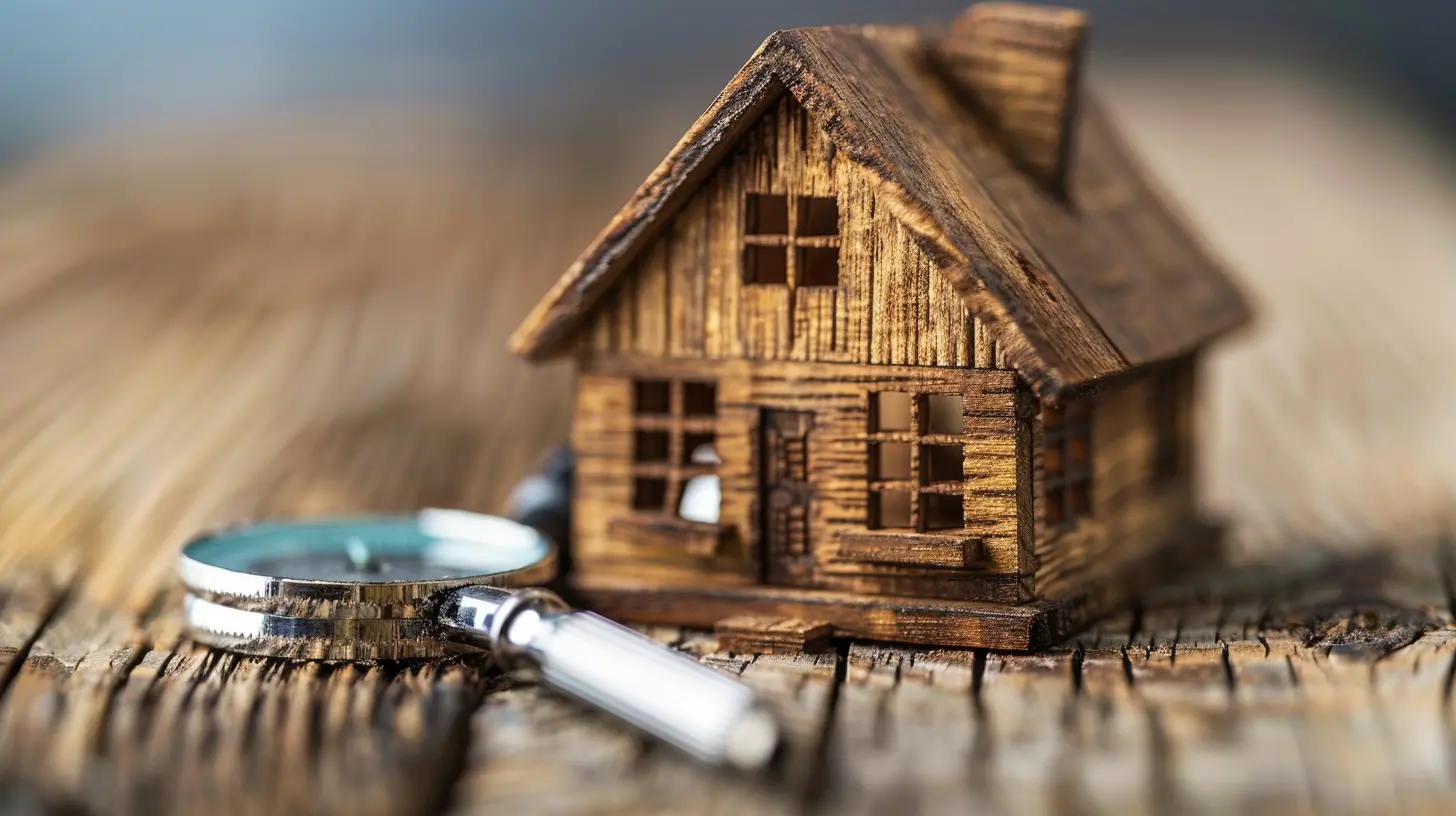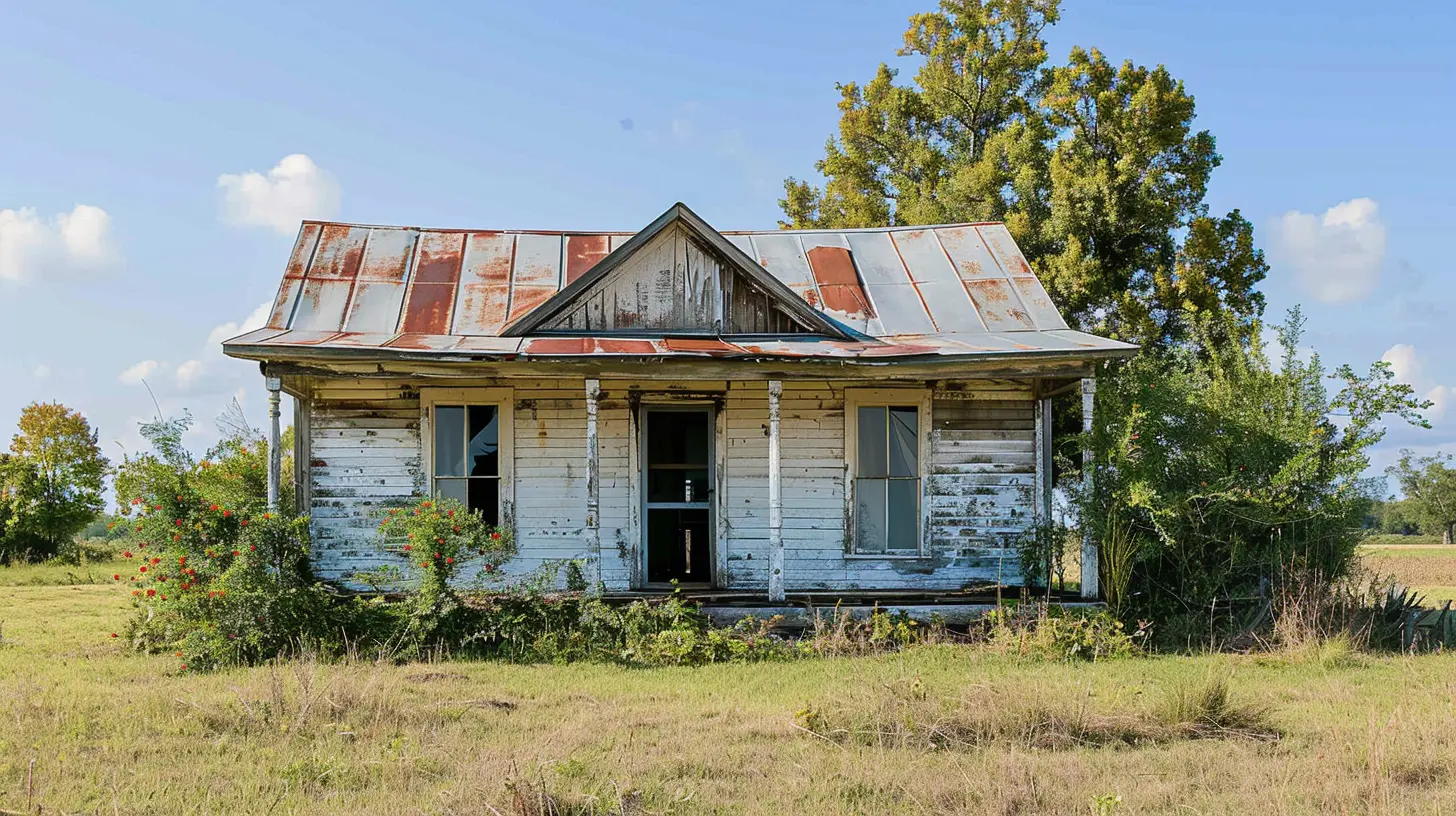Importance of Property Inspections Before Purchasing Fixer-Uppers
27 November 2025
Thinking about buying a fixer-upper? It’s easy to romanticize the idea of turning an old, neglected house into your dream home. But before you sign on the dotted line, one crucial step can make or break your investment—property inspections. Skipping this step is like jumping into a swimming pool without checking if there’s water inside.
Buying a fixer-upper is no small feat, and while these homes often come with lower price tags, they can also bring hidden surprises—some of which can drain your budget faster than you expected. A thorough inspection ensures that you're making a smart, informed decision rather than a costly mistake. In this article, we’ll dive deep into the importance of property inspections before purchasing a fixer-upper and why they should never be overlooked. 
Why Property Inspections Matter for Fixer-Uppers
A fixer-upper is a property that needs various repairs, either minor or major. Some buyers purchase these homes with the intention of flipping them for profit, while others see them as a budget-friendly way to own a home in a desirable location. Whatever your reason, getting a professional inspection is non-negotiable.A home might look decent on the surface, but you never know what lurks behind the walls, under the floors, or in the foundation. That’s where a thorough inspection can save you from financial disaster. 
Uncovering Hidden Structural Issues
One of the biggest risks with fixer-uppers is structural damage. From foundation cracks to weakened support beams, these are not problems you want to discover after buying the home. A professional home inspector will evaluate:- Foundation integrity – Are there cracks or shifting issues?
- Roof condition – Will you need to replace it sooner than expected?
- Load-bearing walls – Are they compromised in any way?
- Flooring stability – Is there uneven flooring that could signal deeper problems?
Fixing structural issues can cost tens of thousands of dollars. Without an inspection, you could end up sinking more money into repairs than the home’s worth. 
Assessing Electrical and Plumbing Systems
Old homes often come with outdated electrical wiring and plumbing. If these systems haven't been updated in decades, you could be facing serious safety hazards, including fire risks or water damage. During an inspection, professionals will check for:- Knob-and-tube wiring (common in older homes and a fire hazard)
- Faulty electrical panels that may not support modern appliances
- Leaky pipes or corroded plumbing
- Low water pressure or issues with drainage
If an inspection reveals major issues, you’ll know ahead of time what repairs are necessary—or if the home is too much of a money pit. 
Detecting Mold, Pest Infestations, and Asbestos
There’s nothing worse than moving into a home only to discover mold hiding behind the walls, termites chewing through your foundation, or asbestos lurking in the ceiling. These problems aren’t always obvious during a walkthrough, but they can be incredibly expensive to fix.A professional home inspection checks for:
- Mold and mildew – Common in older homes, especially in damp areas like basements and crawl spaces.
- Termites and pests – They can cause extensive structural damage if left unchecked.
- Asbestos and lead-based paint – Common in homes built before the 1980s, requiring special (and costly) removal procedures.
Knowing about these issues before purchasing allows you to negotiate repair costs with the seller or reconsider buying the home altogether.
Estimating the True Cost of Renovations
Without an inspection, you won’t have a clear picture of how much time, money, and effort the renovations will take. What might seem like a bargain now could become a nightmare when surprise costs start piling up.A home inspector can help you prioritize repairs, identifying what needs immediate attention and what can wait. This allows you to budget realistically and avoid financial strain.
Negotiating a Better Deal
Inspections don’t just reveal problems—they give you leverage in negotiating the price. If significant issues show up in the report, you can:- Ask the seller to lower the price based on expected repair costs.
- Request that specific repairs be completed before closing.
- Walk away from the deal if the problems are too extensive.
Putting money into a fixer-upper can be a great investment, but only if you buy it at the right price with a realistic understanding of the necessary repairs.
Avoiding “Money Pit” Nightmares
The worst-case scenario? Buying a fixer-upper that turns into a money pit—where the cost of repairs far exceeds its potential value. An inspection acts as your safety net, helping you make an informed decision rather than an emotional one.Sure, a fresh coat of paint and new hardwood floors make a home look nice, but what’s underneath could tell a completely different story. Without an inspection, you’re gambling with your hard-earned cash.
Choosing the Right Home Inspector
Not all home inspectors are created equal. To get the most accurate assessment, you need someone who understands the unique challenges of older and distressed properties. Here’s what to look for:- Certified and experienced – Make sure they have proper credentials and experience with fixer-uppers.
- Detailed reports – You want more than a checklist; a comprehensive analysis with photos is ideal.
- Good reputation – Check online reviews and ask for referrals.
- Willing to walk you through issues – A great inspector will explain problems in a way that makes sense, rather than just handing you a report.
Hiring the right inspector can save you thousands, so don’t cut corners on this step!
Final Thoughts: Inspections Are an Investment, Not an Expense
At the end of the day, a property inspection is more than just a formality—it’s a crucial investment in your future home. It can prevent expensive surprises, help you negotiate a better deal, and ensure that your fixer-upper is a smart investment rather than a financial drain.If you’re excited about the prospect of transforming a fixer-upper, do yourself a favor—get that inspection done. It might just be the most important decision you make in the entire home-buying process.
Ready to buy a fixer-upper? Make sure you know exactly what you’re getting into before you commit!
all images in this post were generated using AI tools
Category:
House FlippingAuthor:

Kingston Estes
Discussion
rate this article
1 comments
Violet Kelly
What's hidden behind those charming walls?
December 2, 2025 at 3:16 AM

Kingston Estes
Behind those charming walls may lie unseen issues that only a thorough property inspection can reveal.


